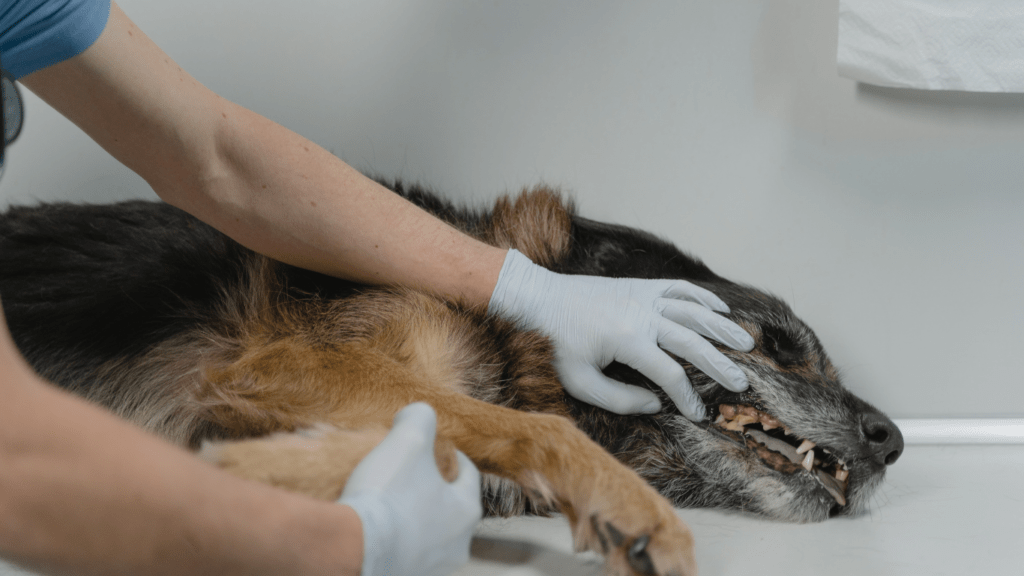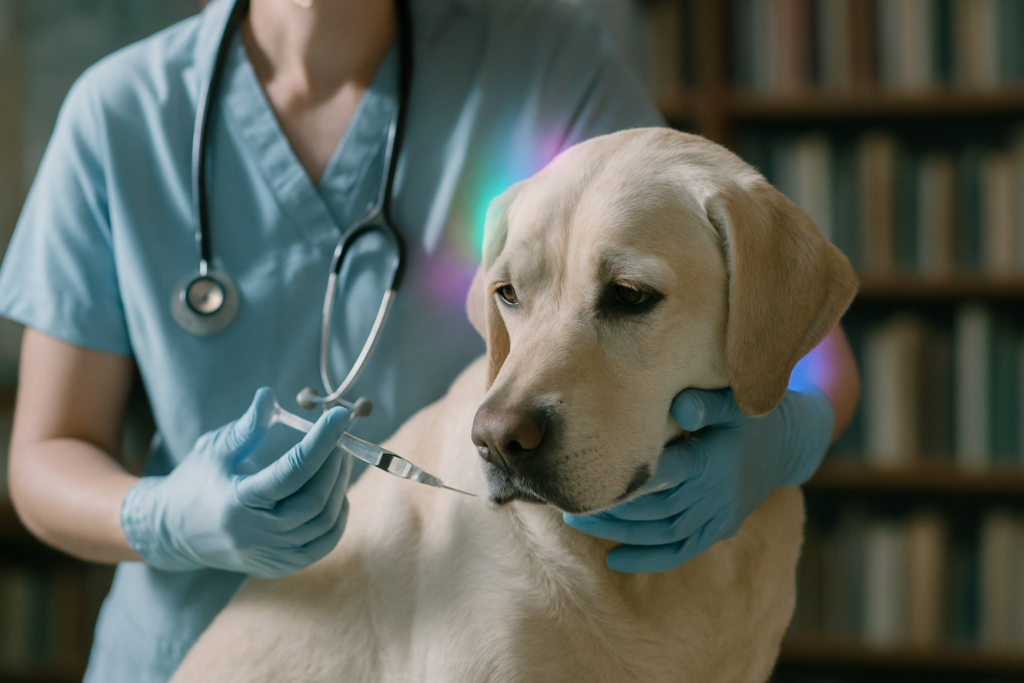As a pet owner, I understand the challenges that come with addressing behavioral issues in our furry companions. It’s crucial to recognize when certain behaviors go beyond just a phase and require professional intervention. In this article, I’ll discuss the signs that indicate it’s time to seek veterinary help for your pet’s behavioral concerns.
From sudden aggression to excessive anxiety, our pets can exhibit a range of behaviors that may signal an underlying issue. Knowing when to involve a veterinarian can make a significant difference in your pet’s well-being. By being proactive and seeking timely assistance, you can address behavioral issues effectively and improve the quality of life for your beloved animal companion.
Join me as we explore the red flags that indicate the need for veterinary support in managing your pet’s behavioral challenges. Your pet’s happiness and harmony within your home are worth the investment in seeking professional guidance.
Understanding Behavioral Issues in Pets
As a pet owner, understanding behavioral issues in your furry companions is crucial for their well-being. Pets, like humans, can experience psychological challenges that may manifest in various ways. By being observant and knowledgeable about common behavioral problems in pets, I can better address any issues my pet may encounter.
Recognizing Behavioral Changes
When it comes to pets, changes in behavior can be subtle yet significant. Keeping an eye out for signs such as increased aggression, excessive barking, withdrawal, or destructive behavior is essential. Consistent observation allows me to notice patterns and deviations from my pet’s typical demeanor.
Identifying Triggers
Knowing what triggers certain behaviors in my pet can help me manage and prevent negative reactions. Whether it’s loud noises, unfamiliar environments, or social interactions, understanding these triggers empowers me to create a safe and comfortable space for my pet.
Seeking Professional Help
While some behavioral issues can be addressed through training and environmental modifications, others may require professional intervention. Consulting a veterinarian or animal behaviorist can provide valuable insights and guidance on managing complex behavioral problems effectively.
Establishing Routine and Consistency
Maintaining a consistent routine for my pet instills a sense of security and predictability. Regular exercise, mental stimulation, and a balanced diet contribute to a stable environment that promotes positive behavior.
Patience and Positive Reinforcement
Dealing with behavioral issues in pets requires patience and positive reinforcement. Rewarding desired behaviors and redirecting negative ones gently can encourage lasting changes in your pet’s conduct.
Creating a Supportive Environment
Creating a supportive and enriching environment for your pet is key to addressing behavioral issues. Providing mental and physical stimulation, social interactions, and safe spaces allows your pet to thrive and reduces the likelihood of developing problematic behaviors.
By understanding behavioral issues in pets, recognizing early signs, and seeking appropriate help when needed, I can ensure the well-being and happiness of my beloved companion.
Common Types of Behavioral Problems
When it comes to pets, understanding common behavioral problems is key to ensuring their well-being. Here, I delve into specific types of issues that pet owners may encounter and provide insights on when it’s essential to seek veterinary help for these concerns.
Aggression
Aggression in pets can manifest in various forms, such as growling, biting, or scratching. It’s crucial to address aggressive behavior promptly to prevent injuries to both the pet and household members. If your pet displays signs of aggression, seeking veterinary help is highly recommended to assess the underlying causes and implement appropriate behavioral modification techniques.
Separation Anxiety
Pets experiencing separation anxiety may exhibit distress when left alone, leading to destructive behavior or excessive vocalization. Recognizing the symptoms of separation anxiety, such as pacing, panting, or house soiling, is crucial. Veterinary assistance can provide guidance on managing separation anxiety through behavior modification, environmental enrichment, and possibly medication if necessary.
Destructive Behavior
Destructive behavior in pets, including chewing furniture, digging, or excessive scratching, can be challenging for pet owners. Understanding the root cause of destructive behavior is vital in addressing the issue effectively. If your pet engages in destructive behavior, consulting with a veterinarian can help identify triggers, implement positive reinforcement strategies, and recommend appropriate outlets for your pet’s energy and mental stimulation.
Signs It’s Time to Consult a Veterinary Professional
When to Seek Veterinary Help for Pet Behavioral Issues can depend on various signs and behaviors that indicate a need for professional intervention. Recognizing these signals early can lead to effective solutions and improved well-being for your furry friend.
- Persistent Aggression: If your pet displays ongoing aggressive behavior towards people or other animals, it’s crucial to consult a veterinary professional. Aggression can stem from various underlying causes, including fear, pain, or territorial instincts. A veterinarian can help identify the root cause and recommend appropriate behavior modification techniques.
- Severe Separation Anxiety: Pets suffering from severe separation anxiety may exhibit destructive behavior, excessive barking, or attempts to escape when left alone. Seeking help from a vet is essential to develop a comprehensive treatment plan that may include behavior therapy, medication, or environmental modifications to alleviate the anxiety.
- Destructive Behavior: Pets that engage in destructive behavior, such as chewing furniture, excessive digging, or self-harm, may need veterinary assistance. These behaviors can indicate underlying issues like anxiety, boredom, or medical conditions. A veterinarian can conduct a thorough evaluation to address the root cause and recommend appropriate interventions.
- Sudden Changes in Behavior: Any sudden changes in your pet’s behavior, such as sudden aggression, excessive lethargy, or reluctance to eat, warrant a visit to the vet. These changes could be indicative of underlying health problems or emotional issues that require professional assessment and treatment.
- Persistent Fear or Anxiety: Pets exhibiting persistent fear, anxiety, or phobias may benefit from veterinary guidance. Fearful behavior can impact your pet’s quality of life and may indicate underlying issues that need to be addressed. A veterinary professional can provide behavioral assessments and recommend suitable management strategies.
Recognizing these signs and promptly seeking veterinary assistance can help address behavioral issues effectively and ensure the well-being of your beloved pet.
Seeking Help from a Qualified Veterinarian
When addressing pet behavioral issues, it’s essential to recognize the signs that indicate the need for professional intervention. As a pet owner, observing certain behaviors in your furry companion should prompt you to seek help from a qualified veterinarian. Some key indicators that warrant veterinary assistance include:
- Persistent Aggression: If your pet displays ongoing aggressive behavior towards you, other pets, or strangers, it’s crucial to consult a veterinarian. Aggression in pets can be a sign of underlying health issues or behavioral problems that need to be addressed promptly.
- Severe Separation Anxiety: Pets experiencing severe separation anxiety may exhibit destructive behavior, excessive vocalization, or attempts to escape when left alone. Seeking help from a veterinarian can provide guidance on managing separation anxiety and improving your pet’s well-being.
- Destructive Behavior: Pets that engage in destructive behavior, such as chewing furniture, excessive digging, or destroying household items, may benefit from professional intervention. A veterinarian can help identify the root cause of the behavior and recommend appropriate strategies for correction.
- Sudden Changes in Behavior: Abrupt changes in your pet’s behavior, such as sudden fears, phobias, or anxieties, should not be overlooked. Consulting a veterinarian can help rule out medical conditions and address any underlying issues causing the sudden behavior changes.
- Persistent Fear or Anxiety: Pets experiencing persistent fear or anxiety in various situations may require veterinary assistance. A veterinarian can evaluate your pet’s behavior, provide behavioral modification techniques, and, if necessary, recommend medication to alleviate anxiety and improve overall quality of life.
Recognizing these signs and proactively seeking help from a qualified veterinarian is essential for addressing pet behavioral issues effectively. Early intervention and professional guidance can make a significant difference in improving your pet’s behavioral well-being and overall quality of life.




